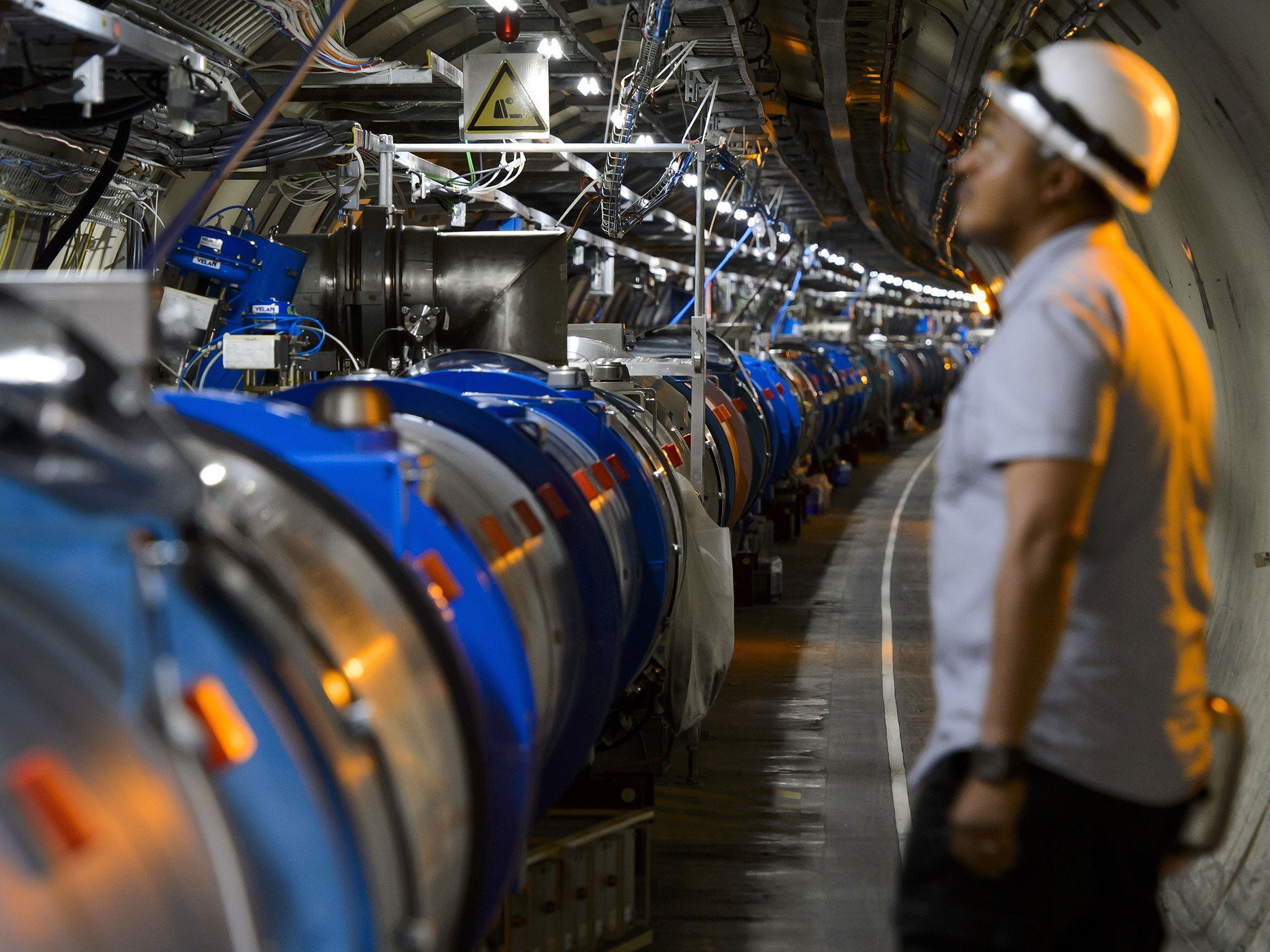Large Hadron Collider: atom smashing delayed by short circuit
Experiments had been set to begin this week, but small fixes must now be made to electromagnets

The restart of the Large Hadron Collider, after it has been turned off for two years, has been delayed by a short circuit in in one of its electromagnets.
The full delay could last more than a month, officials said. The LHC was set to be switched back on this week and begin its search for dark matter and other mysteries of the universe.
Arnaud Marsollier, chief spokesman for the European Organization for Nuclear Research (Cern) said that a small metallic piece near a magnet has to be taken out of the system before it fires back up.
Officials are unclear whether the removal will be an easy process, which could take a day or two, or a much longer one. If removing the piece is difficult, the team could have to shut down the machine and then warm it back up, which could take as much as five weeks in total.
Though Cern understands the issue, the cooling and warming required to fix it could cause the long delays.
The machine has been shut down for two years, after it found the Higgs Boson. During that time it has been repaired and upgraded, and scientists hope that when it finally gets switched back on it can answer questions about dark matter and other mysteries of the universe.
The delays won’t stop that mission, officials said, and the timetable had always been made to be flexible.
Join our commenting forum
Join thought-provoking conversations, follow other Independent readers and see their replies
0Comments